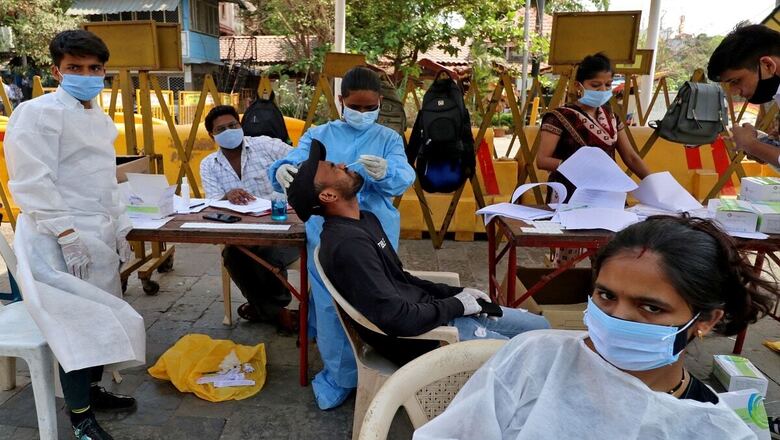
views
While most symptoms of Covid-19 resemble that of a common cold or flu, a test helps to determine if at all it is coronavirus or some other viral infection. At the same time in the second wave, false negatives have added to the uncertainty. The RT-PCR report might be negative, but your symptoms, like body ache, headache and shortness of breath, can be indicative of Covid-19. The experts are now suggesting to isolate and start medication on the basis of these symptoms only, irrespective of the test report.
Despite that, the government and health experts have reiterated on several occasions that testing, apart from tracing and vaccinating, are important to help break the chain of covid-19 infections. Once symptoms emerge, isolate and get tested, experts say.
A Covid test typically uses nose swab or throat swab to detect the traces of coronavirus in the nasal/respiratory tract. The test can be booked online (or on phone) for home collection of sample or the patient can visit any testing lab or healthcare facility for the test. A positive report is indicative of the presence of coronavirus in your nasal secretions, suggesting you are infected.
Apart from RT-PCR tests, antibody testing is also done. Also known as serology test, this procedure is done to determine if you have been infected with coronavirus in the past by detecting covid-19 antibodies in your blood. “Antibodies are proteins created by your body’s immune system soon after you have been infected or vaccinated,” the Centre for Disease Control (CDC) explains.
“Antibody tests should not be used to diagnose a current infection with the virus that causes COVID-19, except in instances in which viral testing is delayed. An antibody test may not show if you have a current infection because it can take 1–3 weeks after the infection for your body to make antibodies,” it says.
A positive antibody test means that you were likely infected in the past and have developed antibodies to resist coronavirus infection. However, reinfections have also been repeated in India, particularly in the second wave. Hence, a positive antibody report is not a certificate that you will not contract the infection again.
Read all the Latest News, Breaking News and Coronavirus News here. Follow us on Facebook, Twitter and Telegram.



















Comments
0 comment